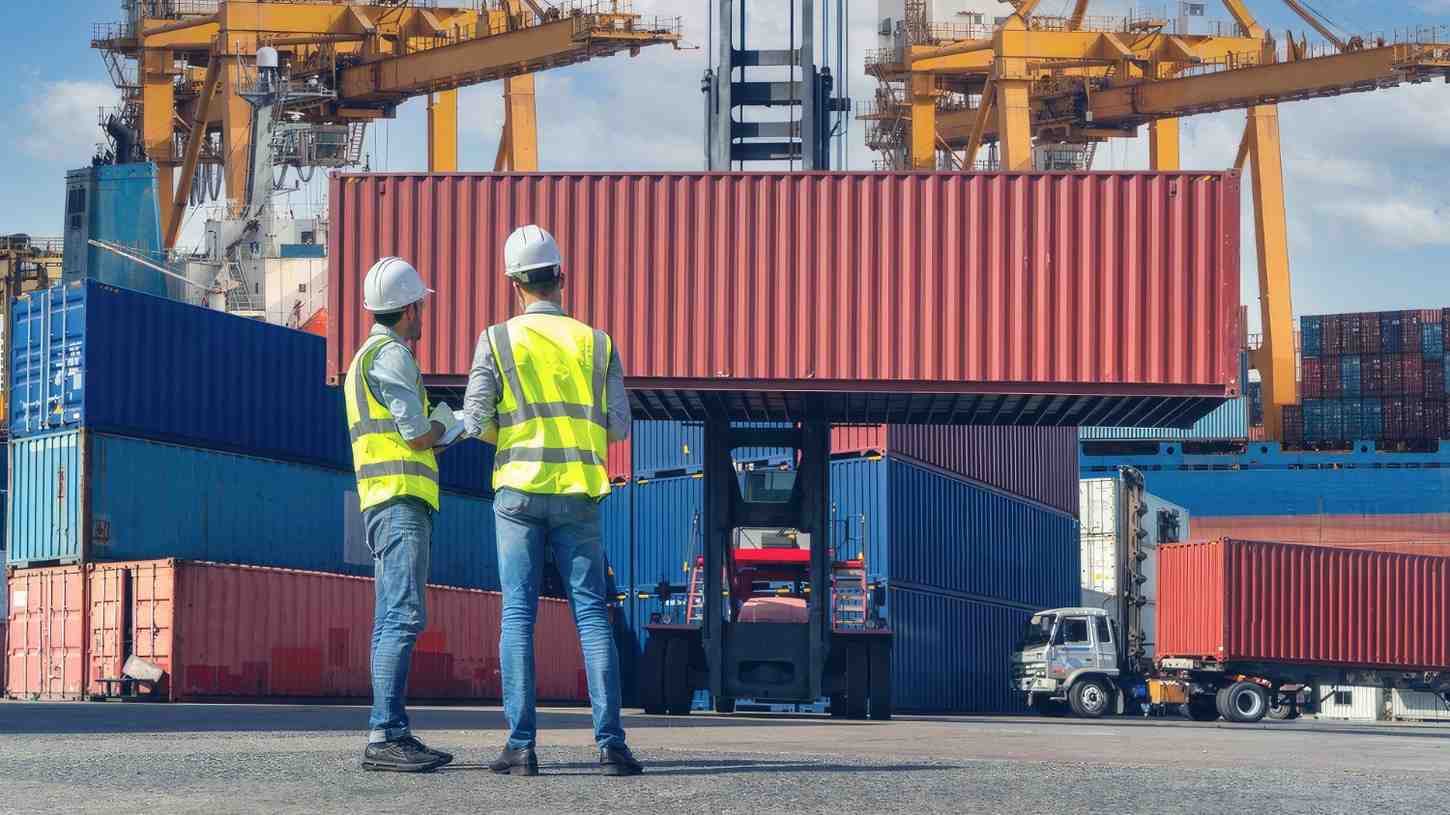
The success of business, in a more integrated world, is defined more by the ability to effectively move merchandise from one part of the world to another. International logistics is the backbone for smooth international trading activities, involving the exchange of merchandise from across borders. Being a significant participant in this important sector, Wahyd Logistics develops cutting-edge solutions to help businesses thrive in the face of fierce competition on the global level.
In this blog, we look at the critical role global logistics plays in transforming businesses, bringing them to international markets, efficiency improvements, and growth. Suppose you are a startup, aiming for the world stage with your business, or any established enterprise for that matter in order to optimize your supply chain. In that case, you have to understand what effect global logistics bears.
The Basics of Global Logistics
This applies to logistic activity, universally, in that it is necessary for the planning and implementation in a controlled, efficient, and effective manner concerning the flow of goods from the point of origin to the point of consumption. It is a complex system of integrating management for transportation, warehousing, inventory, material handling, and packaging all through a network of facilities and transportation systems.
For businesses aiming to reach a global audience, logistics bridges the gap between local products and global markets. It is not only about shipping an item from point A to point B; it is a strategic management of flow in such a manner as to maximize speed or minimize costs, while at the same time getting the goods delivered in impeccable condition.
Wahyd Logistics stands at the forefront of this operation, providing businesses of all sizes with the infrastructure and expertise needed to harness the power of global logistics. By leveraging advanced logistics solutions, companies can not only connect with far-reaching markets but also do so with unprecedented efficiency and reliability.
Benefits of Effective Global Logistics
a. Enhanced Market Reach:
- Global Expansion: Access to international markets allows businesses to increase their customer base and diversify their market exposure, reducing dependence on any single market.
- Customer Satisfaction: Efficient logistics lead to faster delivery times and more reliable service, enhancing overall customer satisfaction and loyalty.
b. Reduced Operational Costs:
- Economies of Scale: By expanding operations internationally, businesses can achieve economies of scale, lowering per-unit costs of production and distribution.
- Optimized Supply Chain: Effective logistics management helps in identifying cost-cutting measures by optimizing routes and consolidating shipments.
c. Increased Flexibility and Responsiveness:
- Adaptability: Businesses with streamlined logistics can quickly adapt to market changes and disruptions by rerouting goods and adjusting supply chain processes.
- Inventory Management: Improved logistics lead to better inventory control, reducing excess stock and minimizing shortages.
Technological Advancements in Logistics
Global logistics are within the threshold of the latest technology. Wahyd Logistics is equipped with Artificial Intelligence (AI), the Internet of Things (IoT), and blockchain to disrupt the logistics industry. They further enhance improved tracking and predictive analytics for inventory and demand management, besides ensuring that the documentation process is secure and transparent.
AI algorithms help optimize the route, predict possible disruptions, and be adjusted on the go in real time, which saves time and assets. Cargo monitoring may be affected due to IoT devices that will allow one to trace the environmental situation to hold sensitive products under their needed condition the whole way. On the other hand, the blockchain offers an immutable ledger ideal for the documentation and verification of details that most of the time is complex and huge during international logistics.
It is, therefore, through the adoption of these technologies that businesses can achieve greater logistic accuracy and efficiency in the company, and even cost reduction, thus providing improved customer service that will give the company great leverage in the market.
Impact on Global Logistics
a. Automation and Robotics:
- Efficiency: Automation in warehousing and order fulfillment speeds up the processing and reduces human error.
- Cost Reduction: Robotics can significantly reduce labor costs and increase precision in handling goods.
b. Data Analytics:
- Predictive Analysis: Leveraging big data helps predict trends, consumer behaviors, and potential supply chain disruptions.
- Enhanced Decision Making: Real-time data provides critical insights into logistics performance, aiding in strategic decision-making.
c. Internet of Things (IoT):
- Tracking and Monitoring: IoT enables real-time tracking of goods throughout the supply chain, enhancing visibility and control.
- Improved Safety: Sensors can monitor the condition of goods and ensure they are stored and transported under optimal conditions.
Economic Impact of Global Logistics on Business
Effective global logistic systems are not only operational needs but strategic assets that may impact the bottom line dramatically for a company. Smooth-running logistics processes yield a business that is more cost-effective to permit improved management of resources and operations to reach market demands.
Surely, one of the best instances and success stories from across the globe in the logistics domain may be referred to as FedEx Corporation, which has shown tremendous innovation and grit. FedEx has been successful through state-of-the-art technologies and acquisitions in building up muscles in logistics and enlarging its activities in the world, either vertically or horizontally. That put FedEx into the leadership slot in the express shipping business, including efficiency in worldwide parcel service and comprehensive supply chain solutions.
One of the great attributes of the success of FedEx is flexibility, more so the innovativeness that it takes with digital technology in its course of delivering services that satisfy its customers. Therefore, the organization keeps the competitive advantage in dynamically responding to the changing dynamics of market demands due to aggressive investment in automation and digital transformation.
Challenges in Global Logistics
a. Regulatory Compliance:
- Customs and Duties: Each country has its own set of rules and regulations governing imports and exports that businesses must comply with.
- Documentation: Proper documentation is critical to avoid delays in customs and ensure the smooth transit of goods.
b. Geographical and Cultural Barriers:
- Distance: Longer distances increase the risk of shipment delays and enhance transportation costs.
- Cultural Differences: Understanding local customs, business practices, and consumer preferences is necessary to successfully navigate foreign markets.
c. Risk Management:
- Supply Chain Disruptions: Political instability, natural disasters, and other unforeseen events can disrupt supply chains.
- Quality Control: Maintaining product quality across long distances and different handling facilities can be challenging.
Overcoming Challenges in Global Logistics
Global logistics have never been easy: from regulatory compliance and customs clearance to cultural attitudes and geographic barriers, nearly every aspect can muddle the works. But this has only seemed to complicate management in logistics, making even the best strategies and solutions appear futile.
Taking up such challenges with a proactive approach, the company takes with it the local expertise along with the global technology solutions to better it. For example, compliance experts along with the AI-driven predictive regulation change tool help in navigating through the regulatory environments. Similarly, understanding cultural nuances to suitably package and market products in different regions is also important.
In the case of potential nightmares turning to one’s competitive advantage, for example, it is partnerships with a logistics provider like Wahyd that ensure smooth operations even in markets known for giving companies a hard time.
Strategies for Optimizing Global Logistics
a. Partnering with Experienced Logistics Providers:
- Expertise: Established logistics providers possess the expertise and resources necessary to navigate the complexities of global trade.
- Network: They have an established network that can offer more routes and solutions, often leading to cost savings.
b. Investing in Technology:
- Software Solutions: Implementing the latest logistics software can automate many aspects of supply chain management, from inventory to shipping.
- Integration: Integrating all stages of the logistics process ensures that information flows seamlessly, reducing delays and errors.
c. Focusing on Customer Needs:
- Customization: Tailoring logistics strategies to meet the specific needs of different markets can enhance customer satisfaction.
- Feedback: Regular feedback from customers can provide valuable insights into areas needing improvement.
Conclusion
Effective global logistics are important for any business that views the world as a market from which to compete. The knowledge and technologies brought by Wahyd Logistics serve to not only improve operating efficiencies but also open new growth and expansion opportunities.
Whatever your business requirement is—either looking to streamline its logistical operations or try to expand its reach, consult Wahyd Logistics. Offering tailor-made solutions that accord with your specified requirements, Wahyd helps you maximize global logistics by converting your logistical challenges into opportunities for growth.
Get a step ahead in the future of global business with expert logistic solutions. Contact Wahyd Logistics and take your global business to the next level.






